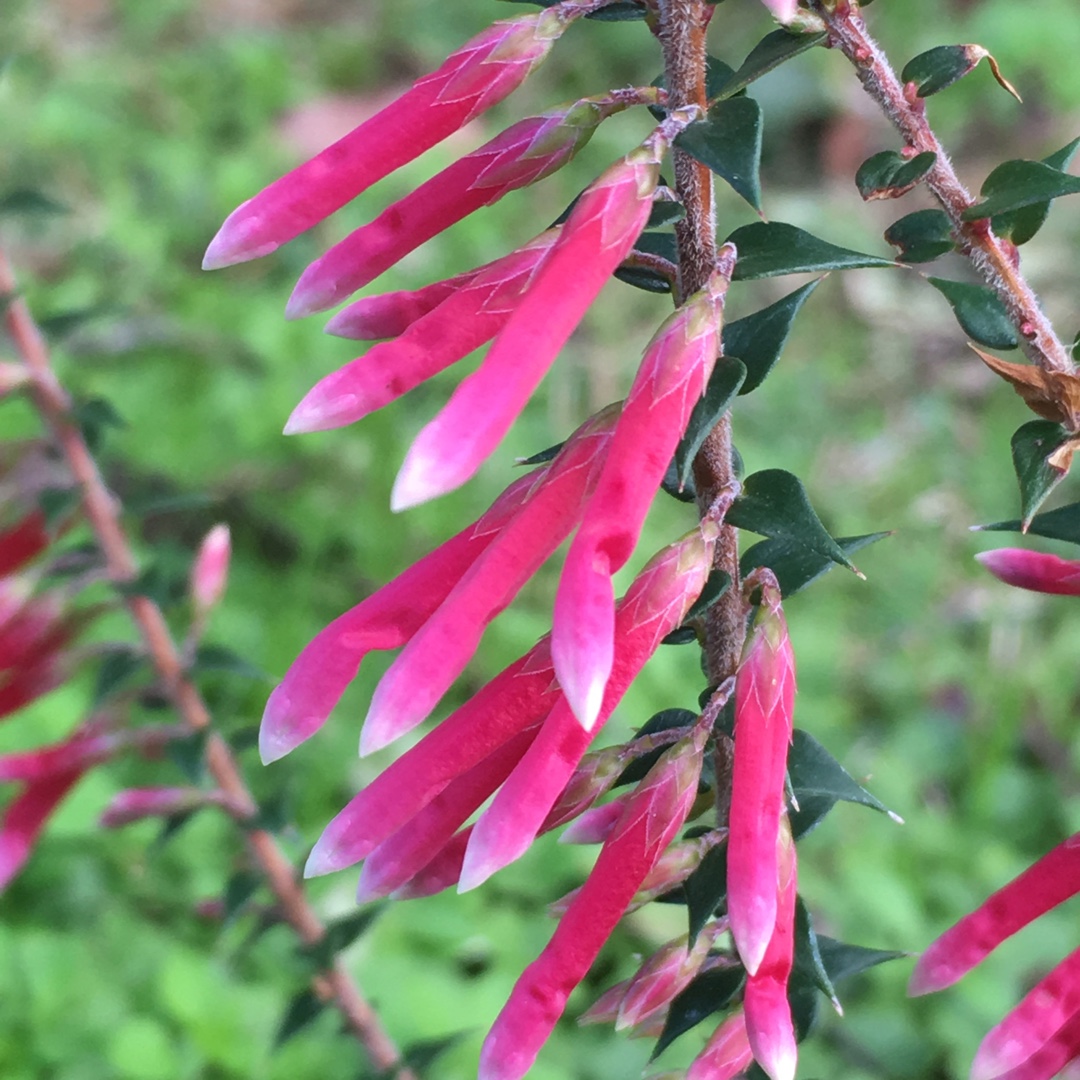
Epacris longiflora x reclinata 'Pan Pipes'
Fuchsia Heath
Epacris is an evergreen shrub usually found in SW Australia. It has sharpish pointed leaves and branches of bright red-pinky tubular flowers with white tips that appear from mid summer to autumn. Branches can become straggly but respond well to pruning. 'Pan Pipes' has white tipped rose pink bell-shaped flowers
Contributed by @victoriam
-
Full sun to partial shade
-
Very little water
-
A little frost hardy: 32F (0°C)
-
Light and free draining
Common name
Fuchsia Heath
Latin name
Epacris longiflora x reclinata 'Pan Pipes'
type
Shrub
family
Ericaceae
ph
5.0 - 7.0 Acid - Neutral
Plant & bloom calendar
-
Best time to plant
-
When the plant will bloom
full grown dimensions
 1.00 M
1.00 M
1.00 M
1.00 M
Epacris longiflora x reclinata 'Pan Pipes'
Epacris is an evergreen shrub usually found in SW Australia. It has sharpish pointed leaves and branches of bright red-pinky tubular flowers with white tips that appear from mid summer to autumn. Branches can become straggly but respond well to pruning. 'Pan Pipes' has white tipped rose pink bell-shaped flowers
Flowering
From Mid Summer TO Late Autumn
This unassuming plant goes unnoticed until it bursts into flower, producing masses of tubular red blooms with white lips throughout the year, although the peak time is mid-summer through to autumn.
Planting
From Early Spring TO Early Spring
Prefers a well drained, slightly sandy soil but will respond badly to extremely dry periods. Can handle full sun but prefers to have a bit of shade.
Propagating by cuttings
From Late Summer TO Early Autumn
Propagate from cuttings but be very careful, as the tender, tiny roots break easily - so it is best to put the cuttings into bio-degradable pots that can be put into the soil once the cuttings have rooted.Take semi- ripe cuttings from this season's growth in Autumn. Cut neatly, just below a leaf node, a 5" approx. piece of a healthy shoot that has soft growth at the tip. pinch out the growing tip, and cut off the bottom leaves. Dip the bottom of the cutting in hormone rooting powder, and carefully place in a pot of cutting compost with the leaves just above the level of the compost. Water, label, cover with a polythene bag, and place in a warm, bright place, out of direct sunlight. Take the polythene bag off periodically for a while for ventilation (at least twice a week)








